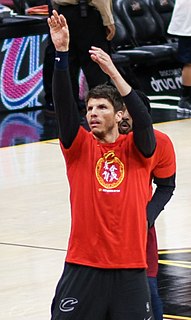A Quote by Marco Roth
There is something to be said for the openness to form, and literary form because it forces you to actually think about the other person, and their motivations, and to try to see them from all sides and to really write about them not as caricature.
Related Quotes
On a spectrum of literary productions, memoir is just another form. If the person doing the reviewing or critiquing was ill-educated about literary forms, they could write something dunderheaded about the author or their life (I've seen these and barfed at them), but anyone who is well-practiced and educated in literature - why would they leave that at the door when entering memoir?
I was in the hospital and I was paralyzed and I went through all of these things. I've had all of these crazy experiences and jobs in my life, but I never really write about them because I've already told them as stories to friends. For me, the process of writing is the process of invention. But the hospital story felt told already. There was nothing to discover in the telling of it. The discovery had to be in the form. It wasn't really the unfamiliarity of the form, it was more about a way incorporate invention and how to realize it imaginatively.
I only try to talk to people about things I really do use in my shot. If I see something similar and something that will help them, then you try to come to them and say, 'I think I might have something for you. Think about it if you like it.' If they do, and they want to keep talking about it, then I will.
Someone wanted me to write a profile for ESPN about the commissioner of baseball, and I said, "He's just some suit! Some Republican. No!" I mean if you want me to write about baseball, boxing or football, I'll write about those things because I watch them, I think about them a lot and I like them. But I don't want to write about Barry Bonds.
The Hollywood stuff in the book tended to come later. I think it was because I was worried about leading with that stuff. I wanted to try to make sure that the other stories in the book were as interesting. I wanted to spend more time on them and craft them. The thing is, with writing, it's form or content.
































